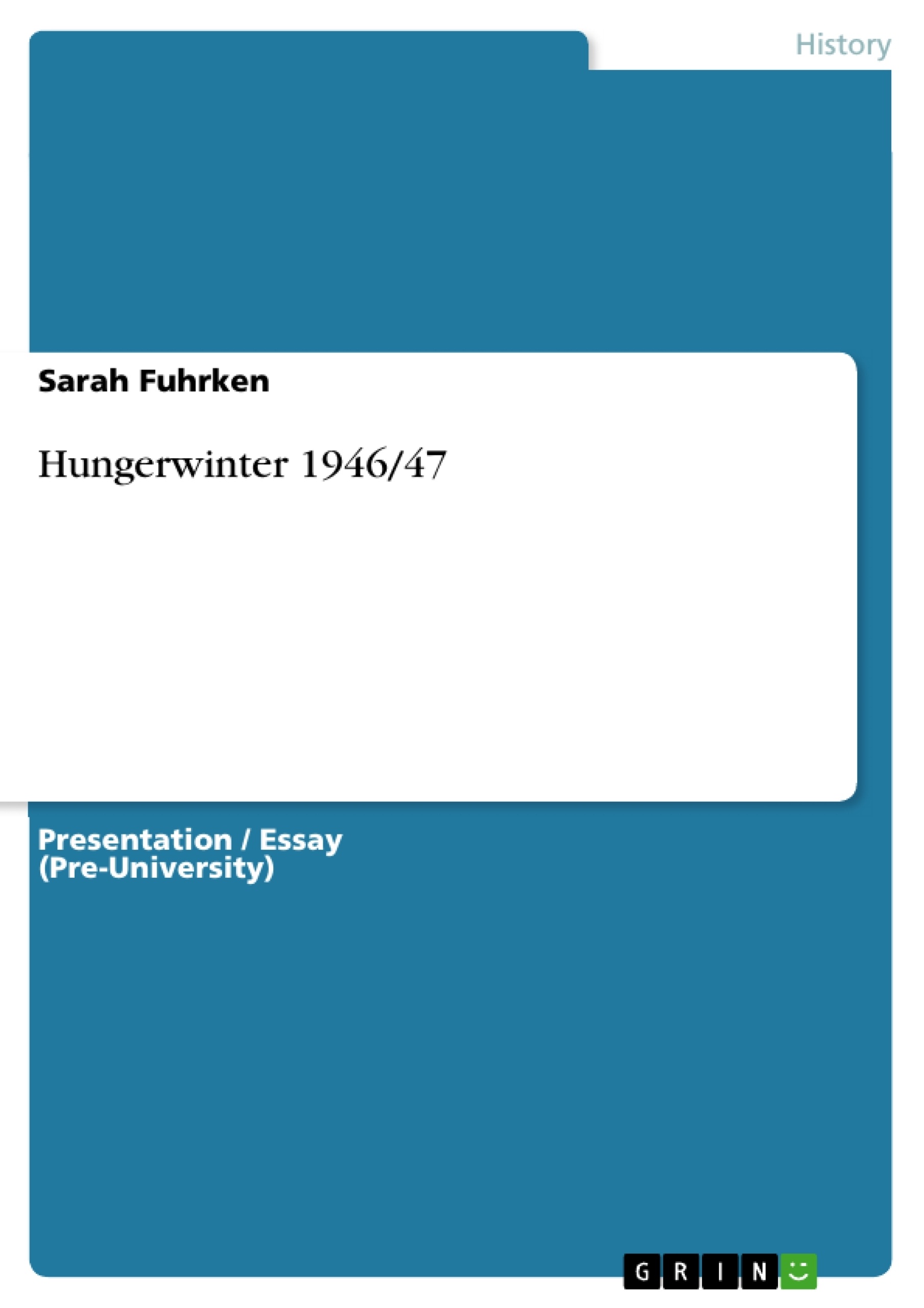This is a research paper about the hungerwinter in postwar Germany. It includes quotes from whitnesses and very reliable sources as well as a detailled report on the victims and other data.
Table of Contents
- Introduction
- Aftermath of World War II
- Homes
- Weather:
- Hot summer
- November
- December
- Impacts
- January
- Food:
- Facts
- Impact on people
- Begging
- Ration Cards
- Thefts
- Günther Kammeyer:
- Experiences
- New Life
- End and Aftermath
- Statement
- Conclusion
Objectives and Key Themes
This research paper delves into the harrowing experience of the Hungerwinter of 1946/47 in post-World War II Germany. The paper aims to explore the devastating impact of this brutal winter on the already weakened German population, highlighting the interplay of factors that contributed to the crisis, such as food shortages, severe weather conditions, and the lack of infrastructure. The paper examines the physical and emotional hardships faced by individuals during this period, with particular focus on the daily struggles for survival and the moral dilemmas that arose in the face of such extreme scarcity.
- The devastating impact of the Hungerwinter on post-war Germany
- The interplay of factors contributing to the crisis, including food shortages, extreme weather, and lack of infrastructure
- The physical and emotional hardships faced by individuals during the Hungerwinter
- The moral dilemmas that arose in the face of extreme scarcity
- The resilience and adaptability of the German people during this challenging period
Chapter Summaries
The paper opens by introducing the Hungerwinter of 1946/47 as a devastating catastrophe that followed World War II, specifically impacting Germany. It highlights the severe conditions, including the harsh winter, destroyed infrastructure, and the lingering effects of war-time poverty and hunger. The chapter then delves into the dire housing situation, with over 25% of homes destroyed and millions living in ruins. Despite the immense hardship, the paper emphasizes the resilience of individuals, illustrated through the quote: “Life had to go on, there was no time for grief.”
The chapter then focuses on the impact of the harsh summer of 1946, which destroyed harvests and foreshadowed the severity of the coming winter. The first wave of the cold in November further aggravated the situation, leading to widespread suffering across Europe. The paper also mentions the particular hardship faced by the Soviet Union during this period.
The next section explores the devastating consequences of the second wave of cold in December, detailing how rivers froze, rendering shipping impossible. The chapter also highlights the emergence of diseases such as scabies, hunger edema, and frostbite, which added to the already immense suffering. This period is characterized as one of extreme hardship and loss, with the term "white death" referring to the perils of the cold and "black hunger" reflecting the devastating impact of food shortages.
The chapter then examines the issue of food scarcity, highlighting the stark contrast between the required daily caloric intake and the meager rations available. The paper emphasizes the psychological toll of hunger, describing the constant worry about food and the desperation that drove people to beg. The chapter also explores the harsh realities of begging, including the mistreatment and rejection experienced by those seeking assistance.
The chapter also discusses the role of ration cards in the food distribution system, emphasizing the inadequacies of the rations and the consequences of losing them. The paper then delves into the desperate measures taken by many, including widespread theft of resources, particularly wood and coal. The chapter concludes by highlighting the ethical dilemmas surrounding theft, quoting Archbishop Joseph Cardinal Frings’ statement that justified such actions for survival.
Keywords
The Hungerwinter of 1946/47, post-war Germany, food shortages, severe weather, infrastructure damage, human resilience, moral dilemmas, poverty, hunger, disease, rationing, theft, survival, wartime experiences.
- Citation du texte
- Sarah Fuhrken (Auteur), 2011, Hungerwinter 1946/47, Munich, GRIN Verlag, https://www.grin.com/document/205235




